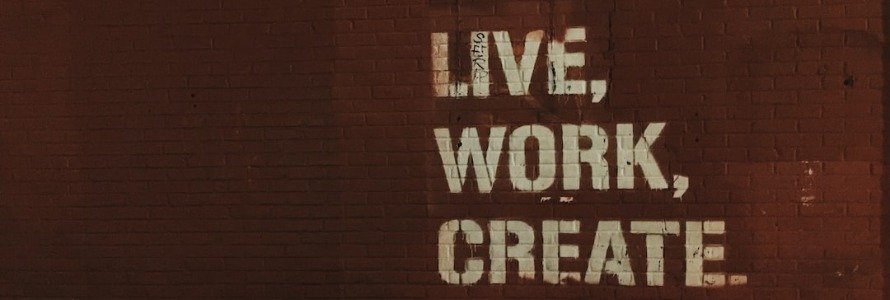
Editing is a critical step in the creative and professional process, whether you’re crafting a novel, preparing a business report, or developing an academic thesis. A skilled editor doesn’t just polish your text; they elevate it, ensuring your work resonates with its intended audience. But finding a reliable editor can feel daunting. How do you know if a professional is right for your project? Let me walk you through the steps that have worked for me and countless others in selecting the perfect editor.
Step 1: Define Your Editing Needs
The first step is understanding what kind of editing your project requires. Editing isn’t a one-size-fits-all process. Here are the primary types:
- Developmental Editing: Focuses on the big picture, such as structure, flow, and content.
- Line Editing: Concentrates on sentence-level writing, refining style and clarity.
- Copy Editing: Ensures grammatical accuracy, punctuation, and consistency.
- Proofreading: A final review to catch typos and minor errors before publication.
If you’re not sure which type of editing you need, think about the state of your project. Is it a rough draft that needs structural help? Or is it polished but requires a fine-tooth comb for grammar? Clarifying your needs will narrow your search and help you communicate with potential editors effectively.
Step 2: Research Potential Editors
With your editing needs in mind, it’s time to research potential candidates. Here are some strategies I’ve used to find reliable editors:
Leverage Professional Networks
Start by asking for recommendations from trusted colleagues, mentors, or peers. If you’re part of a writing or professional community, someone likely knows a great editor.
Explore Online Platforms
Websites like Reedsy, Upwork, and LinkedIn are excellent for connecting with freelance editors. You can read reviews, view portfolios, and often compare rates.
Check Professional Associations
Organizations like the Editorial Freelancers Association (EFA) or the Chartered Institute of Editing and Proofreading (CIEP) maintain directories of qualified editors.
Visit Author Forums
Forums and social media groups for writers, such as those on Reddit or Facebook, often have threads dedicated to editing recommendations.

Step 3: Evaluate Qualifications and Experience
Not all editors are created equal. Take the time to vet your options. Here’s what I look for:
Relevant Experience
Does the editor have experience in your genre or field? Editing a mystery novel requires a different skill set than working on a scientific paper. Look for someone who understands the nuances of your work.
Credentials and Training
Many professional editors hold certifications or have completed specialized training. While formal qualifications aren’t mandatory, they can indicate expertise and commitment to the craft.
Portfolio and Samples
Request samples of their work. Reviewing before-and-after examples of edited texts can provide insight into their style and skill level.
References and Testimonials
Ask for references or read client testimonials. A good editor will have a track record of satisfied clients.
Step 4: Assess Communication Skills
A successful editing partnership relies on clear and open communication. During your initial interactions with a potential editor, consider:
- Responsiveness: Do they reply to your inquiries promptly?
- Clarity: Are they clear about their process, timelines, and pricing?
- Listening Skills: Do they take the time to understand your goals and concerns?
If an editor is difficult to reach or dismissive of your input, that could be a red flag.
Step 5: Discuss Terms and Pricing
Editing can be a significant investment, so it’s essential to discuss terms upfront. Here are key questions to address:
- Rates: Do they charge by the hour, word, or page?
- Scope: What’s included in their services? Will they provide a second review if needed?
- Timeline: Can they meet your deadline?
Be wary of editors who promise unrealistically fast turnarounds or unusually low rates. Quality editing takes time and expertise, and it’s worth paying for a professional who will do the job right.

Step 6: Request a Sample Edit
Many editors offer a sample edit, either for free or a small fee. I’ve found this step invaluable for assessing compatibility. A sample edit lets you evaluate their approach to your work and ensures their style aligns with your vision. It also provides a glimpse into their attention to detail and level of feedback.
Step 7: Trust Your Instincts
While qualifications and experience are critical, your gut feeling matters too. Editing is a collaborative process, and you need to feel comfortable with the person you choose. If something feels off during your interactions, it’s okay to keep looking.
Step 8: Build a Long-Term Relationship
Once you’ve found a reliable editor, nurture the relationship. A trusted editor who understands your style and goals can be an invaluable partner for future projects. Communicate openly, provide feedback, and show appreciation for their work.
Common Pitfalls to Avoid
As someone who has worked with various editors, I’ve learned to steer clear of these common mistakes:
- Rushing the Selection Process: Take your time to vet candidates thoroughly.
- Choosing Based on Price Alone: Cheap doesn’t always mean good. Focus on value and quality.
- Skipping the Contract: Always have a written agreement outlining terms, timelines, and expectations.
- Ignoring Compatibility: An editor might be skilled, but if their style clashes with yours, the partnership won’t work.
Final Thoughts
Finding a reliable editor can take time and effort, but the results are worth it. A skilled editor is more than a fixer of typos; they’re a collaborator who helps you present your best work to the world. By following these steps, you’ll increase your chances of finding an editor who’s not just good but perfect for your project. And once you’ve found the right professional, you’ll wonder how you ever managed without them.

References
American Psychological Association. (2020). Publication manual of the American Psychological Association (7th ed.).
Editorial Freelancers Association. (n.d.). Find an editor. Retrieved January 20, 2025, from https://www.the-efa.org
Reedsy. (n.d.). Find your perfect editor. Retrieved January 20, 2025, from https://reedsy.com
Upwork. (n.d.). Editors for hire. Retrieved January 20, 2025, from https://www.upwork.com


